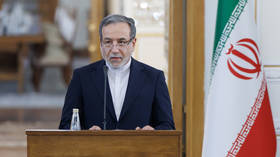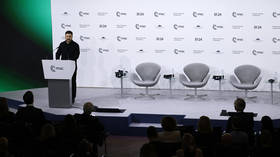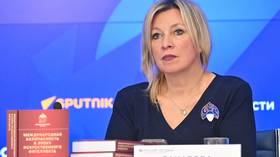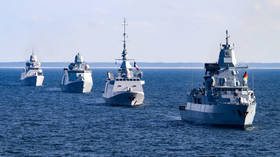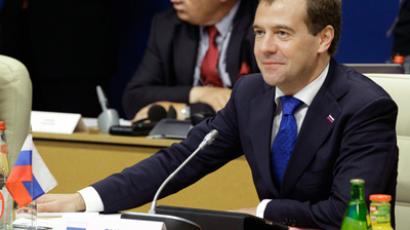US stance on missile defense triggers strong Russian reaction
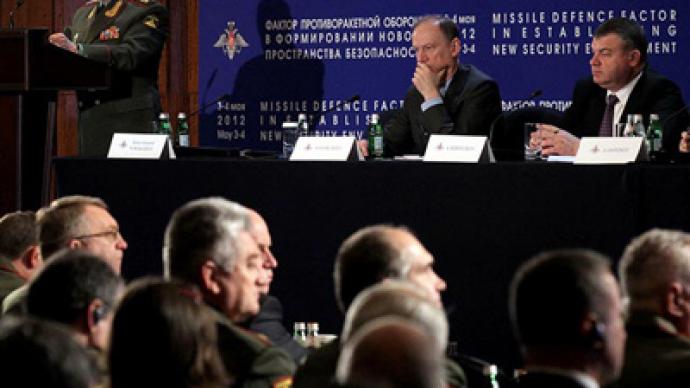
As Washington continues to reject Russia’s offer of cooperation on a European missile defense system, Moscow, which continues to push for a diplomatic solution to the standoff, has vowed to beef up defenses.
Ellen Tauscher, a US State Department special envoy, laid out the US position to reporters before a two-day international conference in Moscow, which has brought together leading politicians and military analysts from 50 countries to discuss the highly-contentious issue.“Our view and analysis is that the United States' missile defenses don't undermine Russia's strategic deterrent… we will once again present the technical facts at this conference,” Tauscher told reporters, as quoted by AP.“I wouldn't say we're at a stalemate in any case,” she said. “We know what the areas of concern and questions are, but because many of them are technical and some of them are political it's important that we continue these technical and expert conversations moving toward the opportunity for cooperation in the future.”Tauscher added that there will be “no breakthrough on missile defense this year” due to the presidential elections in both the US and Russia. Washington expects to continue its negotiations with Russia after Vladimir Putin is sworn in as Russian president on May 7, and after this year's presidential election in the United States, she added. Since US presidential elections do not happen until November, however, Moscow may perceive this further delay as an attempt by Washington to buy more time. Meanwhile, another comment from a member of the US delegation demonstrates Washington’s apparent belief that it can have its geopolitical cake with Russia and eat it too.While deploying its missile defense system in Europe, the United States will “try to preserve strategic stability with Russia,” US Assistant Secretary of State for Global Strategic Affairs Madelyn Creedon has said. Creedon, who is also attending the Moscow conference, said the United States made it clear that the system is not designed to weaken Russia's defenses. Moscow has requested a written contract to back up this verbal assurance, but thus far the US has refused to put their promises on paper. This refusal has sparked Russian suspicions as to the real purpose behind the US system."Any discussions of [legally-binding] guarantees end with evasive offers of practical cooperation presented as the best guarantee," Russian Security Council Secretary Nikolay Patrushev told the assembled members of the conference. "Before any practical measures are taken, partners always define their interests and cooperation terms. The refusal to discuss such terms strengthens the suspicion that the real goal of the missile defense project may be different from the declared one.”The US plans for a missile defense system in Eastern Europe follows a “phased-adaptive” approach that implements in its initial phase ship-based Aegis radars and interceptors, in conjunction with a radar system based in Turkey. In the next phase, radars and interceptors will be bolted down in Romania and Poland, just miles from the Russian border. Russian officials have warned of retaliatory actions if the ongoing deployments threaten to compromise Russia’s nuclear defenses.Anatoly Antonov, Russia’s deputy defense minister, said in an interview with Rossiiskaya Gazeta that Moscow will present new evidence at the conference supporting its claim that the system has the potential to undermine Russia’s Strategic Forces.The main point of the conference “in my opinion, will be the presentation of the results of computer modeling demonstrating how the elements of NATO missile defense, among them new objects in Poland, Romania, Turkey and other places, can have an influence on Russia's nuclear deterrent,” he said.Meanwhile, General Chief of Staff Nikolay Makarov stressed that Russia is not helpless against the smoking US system on its doorstep, and will beef up its defenses in the exclave of Kaliningrad and elsewhere."The deployment of new offensive armaments in southern and northwestern Russia…including Iskander missiles in the Kaliningrad Region, provides for the destruction of the European missile defense infrastructure,” he said.Amid the confusion, President Dmitry Medvedev said he believes Moscow and Washington will be able to reach an agreement on the missile defense problem."I am certain that we are capable of finding a formula that would allow us to avoid a situation that divides us into winners and losers," Nikolay Patrushev quoted Medvedev as saying in his message to those attending the conference.The Russian leader’s encouraging and upbeat words, however, came with an unmistakable warning label."Unilateral steps on deploying a missile defense system taken without considering the general international context and legitimate interests of other states will inevitably lead to response measures," Medvedev said in his message.Such an unfortunate development will prompt the "preconditions for confrontation and a costly arms race," he concluded.That is certainly an outcome that neither Russia nor the US, not to mention Europe, can afford. Robert Bridge, RT




